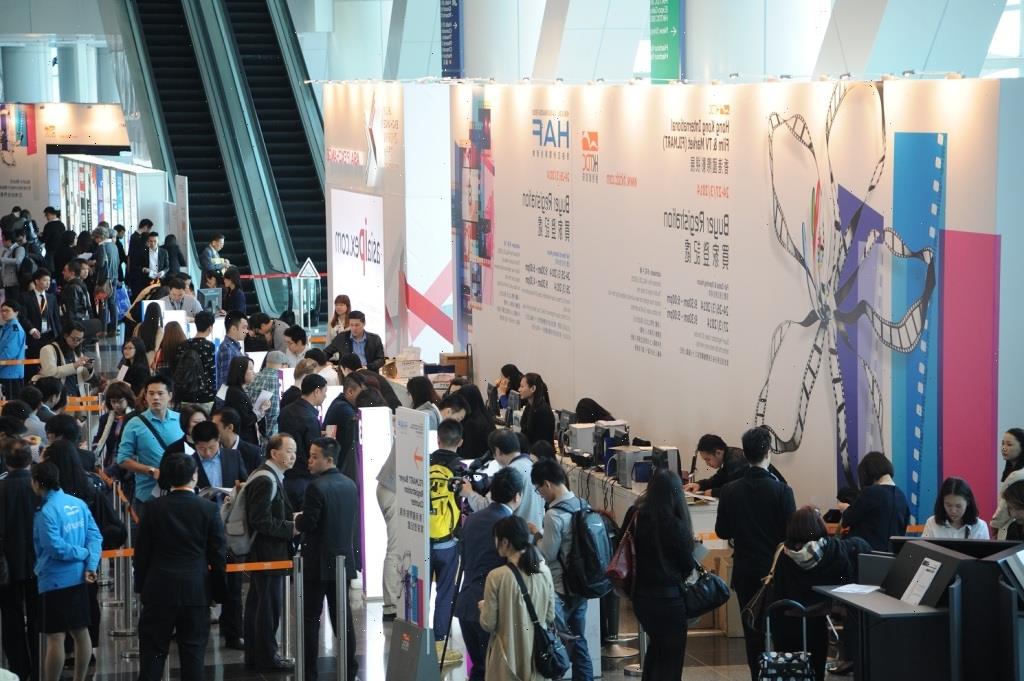The recent removal of COVID restrictions in Hong Kong and mainland China are poised to give Hong Kong’s FilMart – previously Asia’s biggest film and TV rights market – a major boost in its quest for recovery.
The trade show has announced a return to its usual March slot and will operate as an in-person event for the first time in three years.
Backed by the government-sponsored Hong Kong Trade Development Council, the four-day film and TV rights market will run March 13-16 at the city’s Convention and Exhibition Centre in Wanchai. The accompanying HAF film project market (March 13-15) unveiled its initial chunk of selections earlier this week.
“We are expecting to be back to something similar to what we had in the past when we had a physical market,” Gloria Chan, the HKTDC’s section head for the entertainment industry, told Variety. “And we hope that some of the new contacts we reached out to in the past virtual editions will also come and join us [in-person] for the first time.”
The 2020, 2021 and 2022 editions of FilMart and HAF were unable to proceed in physical form due to the COVID pandemic and Hong Kong’s strict policies to suppress the disease. Instead, the market was held as an online-only event in August 2020, March 2021 and in March 2022.
Hong Kong’s disease control measures included quarantine periods of up to two weeks and the mandatory use of a government app detailing person’s virus and vaccination status as a pre-requisite for entry to many facilities, such as restaurants or public transport.
The 2023 edition should now be able to operate largely normally following the Hong Kong government’s December decision to dismantle most elements of its ‘Dynamic COVID-Zero’ policy. Since Dec. 29, 2022, the new measures allow border crossing into Hong Kong without the need for pre-departure PCR tests, on-arrival testing or mandatory quarantine.
From Jan. 8, 2023, the border with mainland China was also reopened, albeit subject to a daily quota of 60,000 people per day. Travelers in both directions are still required to produce negative pre-departure test results, but in the early days of the reopening traveler numbers have been brisk.
Key to the fair’s success in past edition was FilMart and Hong Kong’s strong position as an interface between Asian and international companies with those firms from mainland China.
The TDC was unable to provide specific numbers of mainland participants, explaining that the recruitment process is still ongoing, but said that regional pavilions which host multiple small companies have committed to returning. “Guangdong, Jiangsu, Zhejiang, Hangzhou and Shanghai are all coming back. That’s very, very positive,” said Peggy Lui, TDC associate director, service promotion.
Several mainland Chinese companies and executives contacted by Variety have informally indicated that they expect to attend FilMart. In some cases, the trip will mark their first travel outside the mainland in some three years.
Market organizers at the HKTDC have been working for months to attract back attended. A sales booth at November’s American Film Market touted subsidies and discounts for those willing to sign up early.
Chan said that the TDC has offered incentives to companies seeking to participate. These take the form of reduced admission fees, discounted sales booths and help with flight and hotels. “We will be able to facilitate them more in terms of both their logistics and their actual entry,” she said.
A recent PDF brochure pitching market booths offered “final prices after funding” with discounts ranging from 27% on a 54 m2 sales unit to 46% on a 3 m2 micro-office. The latter costs HK$11,780 ($1,523) for four days hire.
Another promotional message emailed this week is offering 9m2 booths within the Hong Kong Animation and Digital Entertainment Pavilion for HK$8,300 ($1,065). It also described FilMart as the “first international entertainment market travel restrictions are lifted,” a claim that could raise an eyebrow at the AFM, the recent Asian TV Forum in Singapore or next month’s European Film Market in Berlin. FilMart will provide access “to 5,000 partners from mainland China, Asia and around the world,” it continued.
The email also recycled participation data from the 2022 online only edition of FilMart. These boasted 749 virtual exhibitors, 8,000 industry players from 81 territories, 2,400 internationals film and TV productions and 2,500 business matching meetings.
“The past two years has changed a lot of consumer [and business] habits not only for entertainment industry, but for a lot of other industries too. But it is clear that after this time people still want to see each other, to meet each other,” said Chan. “And as market organizers we have to develop our niche as the place for buyers to find Asian content.”
Read More About:
Source: Read Full Article
